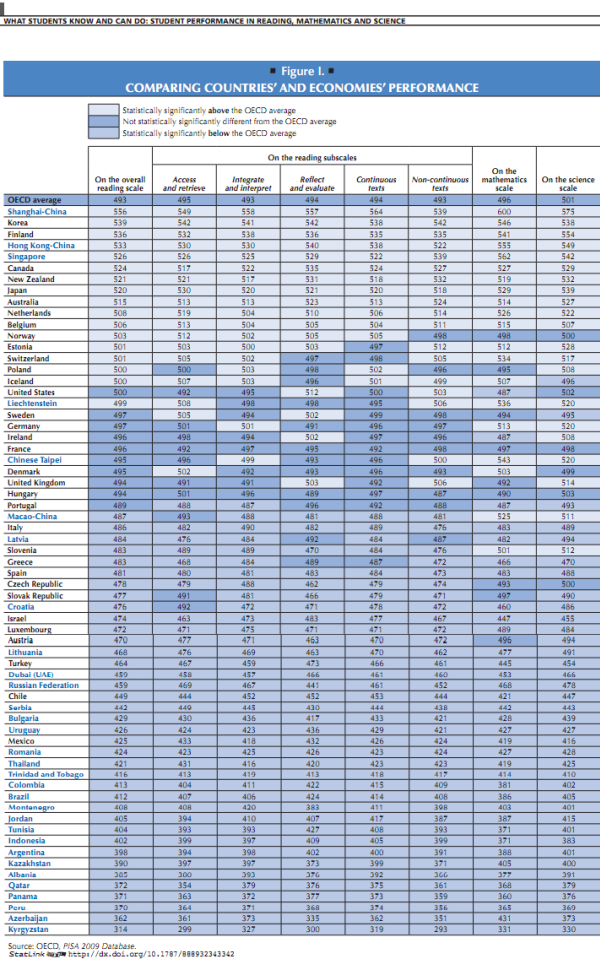To hear politicians describe it, especially those in opposition, Australian education is in dire straits. Take too much notice of the criticisms and you would think that the curriculum is no good and those that teach it are incompetents who get too long an annual holiday who turn out students incapable of basic reading, writing and arithmetic.
Evidence that these sentiments are really nothing more than a gross distortion of what the Australian school system is really like is presented in an Organisation of Economic Cooperation and Development report released overnight comparing the results of education systems in 65 countries. On the OECD Programme for International Student Assessment (PISA) Australia might not be top of the world class but on the measurements of student performance by 15 year olds on reading, mathematics and science it ranks well above the average.
PISA’s conception of reading literacy encompasses the range of situations in which people read, the different ways written texts are presented, and the variety of ways that readers approach and use texts, from the functional and finite, such as finding a particular piece of practical information, to the deep and far-reaching, such as understanding other ways of doing, thinking and being. On this measure Korea and Finland are the highest performing OECD countries, with mean scores of 539 and 536 points, respectively. However, the partner economy Shanghai-China outperforms them by a significant margin, with a mean score of 556. top-performing countries or economies in reading literacy include Hong Kong-china (with a mean score of 533), Singapore (526), Canada (524), New Zealand (521), Japan (520) and Australia (515).
Korea, with a country mean of 546 score points, performed highest among OECD countries in the PISA 2009 mathematics assessment. The partner countries and economies Shanghai-China, Singapore and Hong Kong-China rank first, second and third, respectively. In the PISA 2009 mathematics assessment, the OECD countries Finland, Switzerland, Japan, Canada, the Netherlands, New Zealand, Belgium, Australia, Germany, Estonia, Iceland, Denmark, Slovenia and the partner countries and economies Chinese Taipei, Liechtenstein and Macao-China also perform significantly above the OECD average in mathematics.
Shanghai-China, Finland, Hong Kong-China and Singapore are the four highest performers in the PISA 2009 science assessment. New Zealand, Canada, Estonia, Australia, the Netherlands, Germany, Switzerland, the United Kingdom, Slovenia, Poland, Ireland and Belgium as well as the partner country and economies Chinese Taipei, Liechtenstein and Macao-China also perform significantly above the OECD average.









Crikey is committed to hosting lively discussions. Help us keep the conversation useful, interesting and welcoming. We aim to publish comments quickly in the interest of promoting robust conversation, but we’re a small team and we deploy filters to protect against legal risk. Occasionally your comment may be held up while we review, but we’re working as fast as we can to keep the conversation rolling.
The Crikey comment section is members-only content. Please subscribe to leave a comment.
The Crikey comment section is members-only content. Please login to leave a comment.